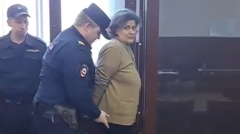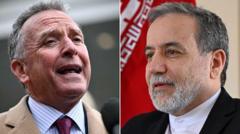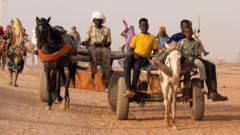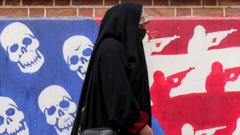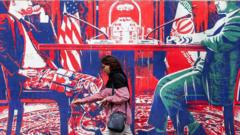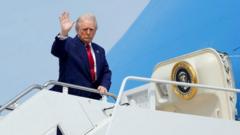Russia's Foreign Minister Sergei Lavrov made headlines with his attendance at a European security summit in Malta, marking a notable first since the invasion of Ukraine in 2022. Amidst heightened tensions and criticism, including an open walkout from Ukrainian Foreign Minister Andriy Sybiga, Lavrov's presence has ignited a fierce debate about Russia's role in international organizations.
Lavrov's Controversial EU Visit Sparks Tensions at Security Summit
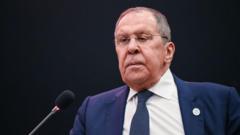
Lavrov's Controversial EU Visit Sparks Tensions at Security Summit
Russian Foreign Minister Sergei Lavrov attends his first EU meeting since Ukraine's invasion, causing disruptions and conflict with counterparts.
Lavrov's attendance at the Organization for Security and Cooperation in Europe (OSCE) meeting in Malta signifies his first trip to an EU member state since the Ukraine conflict began. His visit comes after the EU imposed sanctions on him following Moscow's full-scale military actions in Ukraine. The summit has been marked by controversy, as Ukrainian officials have vehemently opposed Lavrov's presence, calling him a "war criminal" and highlighting the incompatibility of Russia's participation with the OSCE's mission.
During the summit, while addressing the ongoing crisis, Lavrov blamed Western nations for escalating tensions, claiming they are igniting a new Cold War, with the danger of it transforming into an active conflict. Ukrainian Foreign Minister Sybiga expressed outrage at Lavrov's remarks and reiterated that Russia is the foremost threat to collective security.
US Secretary of State Antony Blinken was also present and took the opportunity to condemn Russia's actions, stressing that the war in Ukraine was not about security concerns but was part of President Putin's imperial ambitions to erase Ukraine. Although no formal meeting was scheduled between Blinken and Lavrov, the atmosphere was charged, with several diplomats departing the meeting in protest before Lavrov spoke.
Kyiv had previously boycotted the prior year's OSCE meeting due to Lavrov's anticipated participation, which underscores the prevalent friction between Russia and Ukraine. As part of the ongoing criticism, Lavrov's government has accused the OSCE of being manipulated by NATO and Western countries, ultimately diminishing its effectiveness.
Adding to the tensions, the Russian foreign ministry spokeswoman, Maria Zakharova, had expressed Lavrov's intention to address the perceived "institutional crisis" within the OSCE, claiming that it has been "Ukrainised." Notably, Malta's refusal to grant Zakharova a visa, reportedly due to objections from three OSCE member states, has further complicated the situation, reflecting the diplomatic strains surrounding the summit.
During the summit, while addressing the ongoing crisis, Lavrov blamed Western nations for escalating tensions, claiming they are igniting a new Cold War, with the danger of it transforming into an active conflict. Ukrainian Foreign Minister Sybiga expressed outrage at Lavrov's remarks and reiterated that Russia is the foremost threat to collective security.
US Secretary of State Antony Blinken was also present and took the opportunity to condemn Russia's actions, stressing that the war in Ukraine was not about security concerns but was part of President Putin's imperial ambitions to erase Ukraine. Although no formal meeting was scheduled between Blinken and Lavrov, the atmosphere was charged, with several diplomats departing the meeting in protest before Lavrov spoke.
Kyiv had previously boycotted the prior year's OSCE meeting due to Lavrov's anticipated participation, which underscores the prevalent friction between Russia and Ukraine. As part of the ongoing criticism, Lavrov's government has accused the OSCE of being manipulated by NATO and Western countries, ultimately diminishing its effectiveness.
Adding to the tensions, the Russian foreign ministry spokeswoman, Maria Zakharova, had expressed Lavrov's intention to address the perceived "institutional crisis" within the OSCE, claiming that it has been "Ukrainised." Notably, Malta's refusal to grant Zakharova a visa, reportedly due to objections from three OSCE member states, has further complicated the situation, reflecting the diplomatic strains surrounding the summit.



